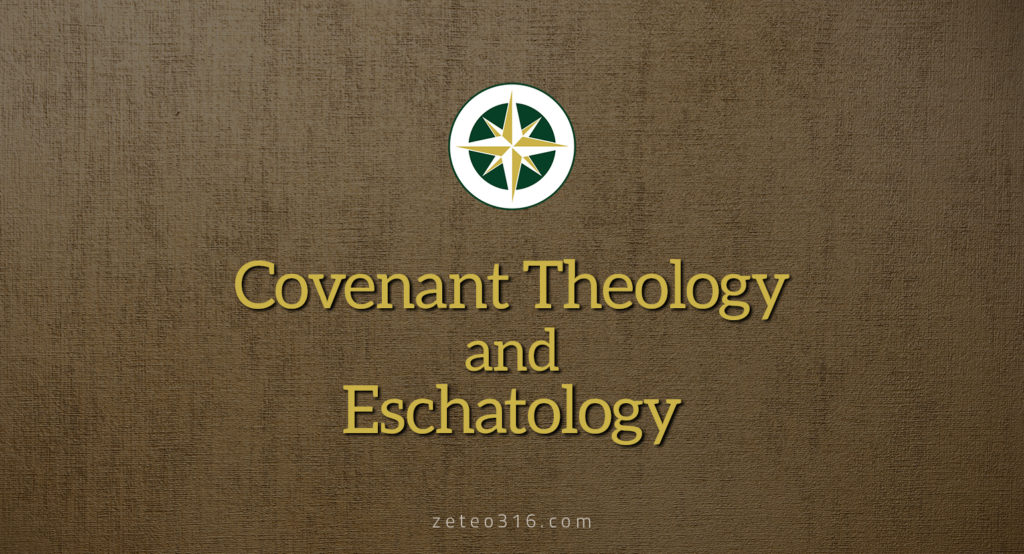Covenant Theology and Eschatology – why does Covenant Theology’s eschatology differ so much from Dispensationalism?
God took me by the shoulders and pointed me in the right direction soon after leaving the New Age behind. It was an answer to prayer. I’m convinced that He providentially provided me with solid teachings. One source I came across was a website containing articles from The Conservative Theological Society. I managed to read some of the material and bookmark suggested links (e.g., Spirit and Truth) before the website disappeared. Being a slow learner, most of the material didn’t sink in. However, I did learn that there were differences between Covenant Theology and Dispensationalism and that the CTs had a dim view of the latter.
Later (in 2005) I subscribed to the Journal of Dispensational Theology, which happened to contain some of the articles on the website I referred to. The September 2006 edition contained an article by Paul Henebury: The Eschatology of Covenant Theology. It took me years to appreciate the differences, even after reading the article. Did I mention I was a slow learner?
Paul’s article can be read at his blog. It should be noted that he prefers the term Biblical Covenantalism, rather than Dispensationalism. I agree with his reasoning. In his The Eschatology of Covenant Theology, he addresses what CT teaches about “the covenants.” He shows how and why this affects CT eschatology – whether it is Amillennial, Postmillennial or Historic Premillennial.
From the article:
The aim of this paper is to give a survey of the eschatologies generated from within the school of Reformed Covenant Theology. Particular attention will be paid to the so-called “Covenant of Grace” as it functions as the main hermeneutical lens through which covenant thinkers interpret their Bibles…keep reading
Paul talks about the “hermeneutical lens.” Covenant Theologians habitually read the New Testament back into the Old Testament. In other words they re-interpret the Old Testament using the New. For example, George E. Ladd was a Historic Premillennialist. His Covenant Theology prevented him from using the OT to justify premillennialism. Ladd may not have been a premillennialist had it not been for NT passages such as Revelation 20.
Dr. Henebury has written a two part series giving us forty reasons why we shouldn’t re-interpret the Old Testament using the New. This series can also be read at his blog:
Drop Paul a line of encouragement if you’ve found these materials as helpful as I have.

